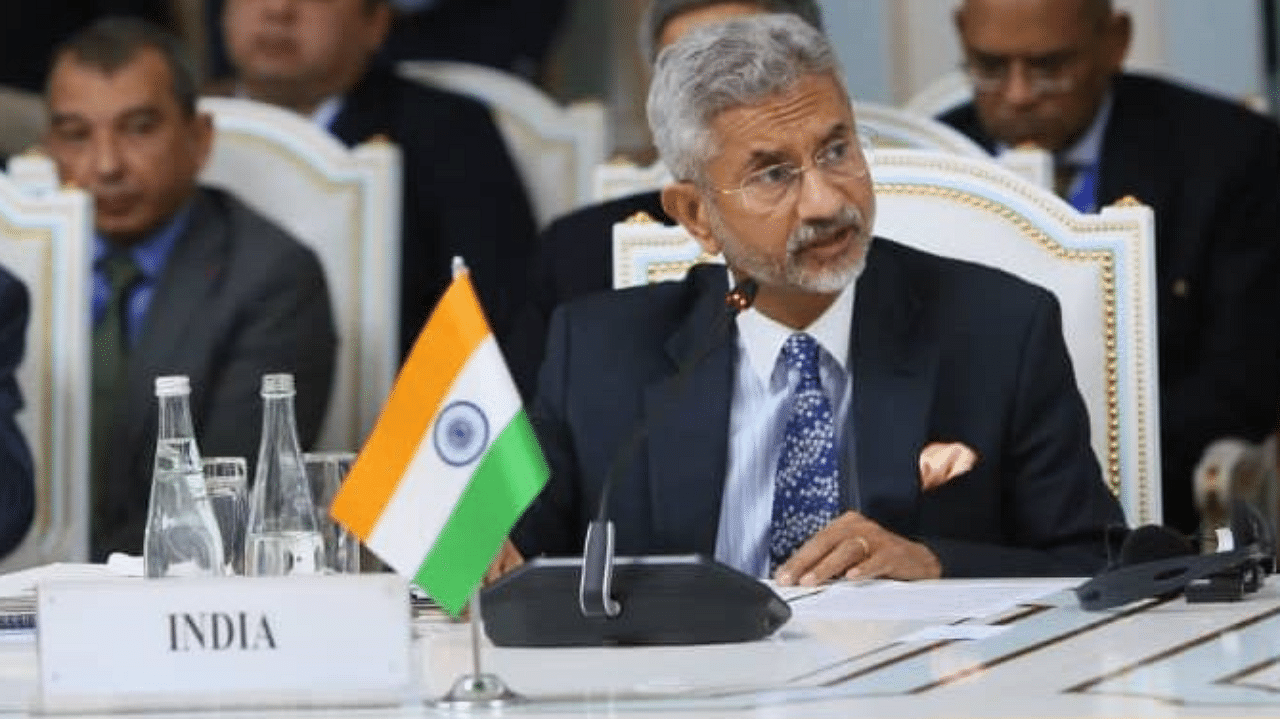
Amid speculation of the possibility of an India-Pakistan détente, New Delhi has underlined that durable peace in Afghanistan would require peace within and around the conflict-ravaged country.
Though New Delhi has, in the past, always blamed Islamabad for supporting terrorism in Afghanistan, it refrained from doing so when External Affairs Minister S Jaishankar made a statement on behalf of the Government of India at a meeting of the “Heart of Asia – Istanbul Process” in Dushanbe on Tuesday.
“For a durable peace in Afghanistan, what we need is a genuine ‘double peace’, that is, peace within Afghanistan and peace around Afghanistan,” Jaishankar said.
“It requires harmonizing the interests of all, both within and around that country,” he added.
Jaishankar said India would welcome any move towards a genuine political settlement and a comprehensive and permanent ceasefire in Afghanistan. He also extended New Delhi’s support to a regional process under the aegis of the United Nations to end the conflict in Afghanistan. “(The) UN stewardship would help to take into account all relevant UN resolutions and improve the odds for a lasting outcome.”
The External Affair Minister flew from Delhi to Dushanbe on Monday to take part in the ninth ministerial meeting of the “Heart of Asia – Istanbul Process”, a multilateral initiative to end the conflict in Afghanistan.
Pakistani Foreign Minister Shah Mahmood Qureshi too participated in the multilateral conclave hosted by the Government of Tajikistan and so did ministers or representatives from Russia, China, Afghanistan, Iran, Kazakhstan, Kyrgyzstan, Turkmenistan, Saudi Arabia, United Arab Emirates, Azerbaijan, Uzbekistan and Turkey.
Islamabad did send informal messages to New Delhi through backchannels, exploring the possibility of a bilateral meeting between Jaishankar and Qureshi on the sideline of the “Heart of Asia” meeting in Dushanbe. But as Prime Minister Narendra Modi’s government has decided to tread cautiously, no such meeting took place.
Jaishankar noted that India has been supportive of all the efforts being made to accelerate the dialogue between the Afghan government and the Taliban.
“If the peace process is to be successful, then it is necessary to ensure that the negotiating parties continue to engage in good faith, with a serious commitment towards reaching a political solution,” said the External Affairs Minister, who had, on September 12, virtually participated in the ceremony held in Doha to mark the beginning of the formal negotiations between the Ghani government in Kabul and the Taliban.
He, however, conveyed “grave concern” over the continued “violence and bloodshed” in Afghanistan.
“The last few months have also witnessed an escalation in targeted killings of civil society. 2020 sadly marked a 45 per cent increase in civilian casualties in Afghanistan over 2019. 2021 does not look very much better.”
